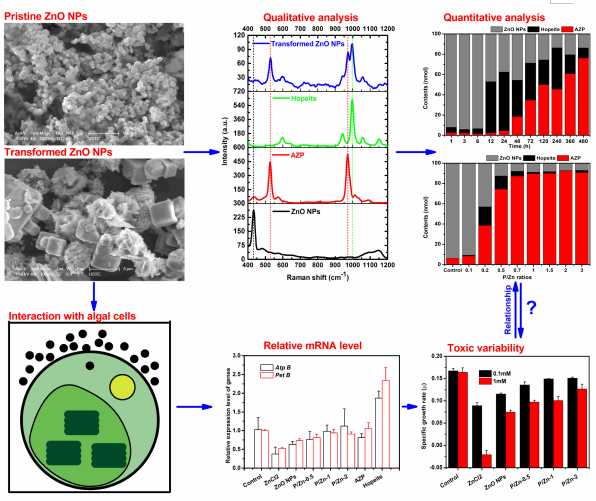Conventional Motorcycle Shocks Chongqing Yuan Innovation Technology Co.,Ltd. , https://www.yuanshoks.com
Hefei Research Institute reveals the impact of environmental transformation of nanomaterials on ecotoxicity
[ Instrument Network Instrument R & D ] Recently, Huang Qing's research group at the Institute of Technology, Biological, and Agricultural Engineering, Hefei Institute of Material Science, Chinese Academy of Sciences took primary algae producers in the aquatic ecosystem as the test object, and applied spectroscopic techniques to nano-zinc oxide in phosphorus-containing water bodies. The qualitative and quantitative analysis of the transformation process in this paper has clarified the influence of environmental substance transformation process on the toxic effects of chlorella and its mechanism. Related results have been accepted for publication by the British Chemical Society journal Environmental Scienc: nano.
With the rapid development of nanotechnology, the potential impact of nanomaterials on the environment and biology has been increasingly concerned. Nanotoxicology research shows that environmental processes have a significant effect on the toxic effects of nanomaterials, making them different from the original state of nanomaterials. However, the effect of environmental transformation processes on toxic effects has yet to be clarified, which is very important for the environmental safety evaluation of nanomaterials.
Researchers used Raman spectroscopy and XRD to find that with the increase of phosphorus content in water, nano zinc oxide was partially converted into crystalline zinc phosphate and then into amorphous zinc phosphate. The results of the toxic effect test show that the toxicity of the nano-sized zinc oxide in the original state mainly comes from the zinc ions released by it; in the water containing phosphorus, the nano-sized zinc oxide undergoes a physico-chemical transformation, resulting in a low-toxicity zinc phosphate, which significantly distinguishes its toxicity from Nano-sized zinc oxide in its original state. In addition, combined with the analysis of photosynthesis-related gene expression, the researchers revealed that changes in the state of nano-sized zinc oxide have an effect on algae photosynthesis, which is an important reason for the difference in nano-toxic effects.
The research results provide theoretical and experimental basis for analyzing the physical and chemical processes of nanomaterials' environmental transformation using spectroscopic technology, clarifying the effects and mechanisms of environmental transformation processes on toxic effects, and reasonably evaluating the ecological safety of nanomaterials in real environmental water bodies.
The research was funded by the National Major Research Program, the National Natural Science Foundation of China, and the Natural Science Foundation of Anhui Province.